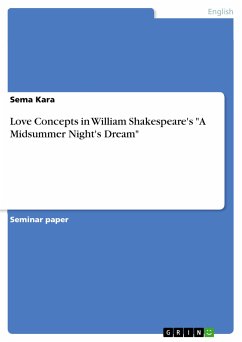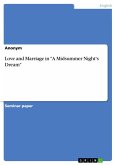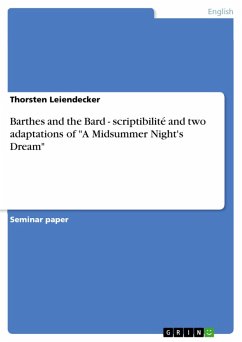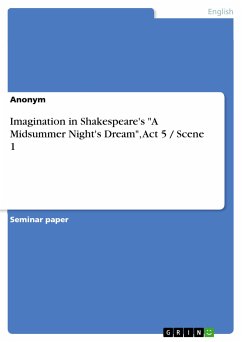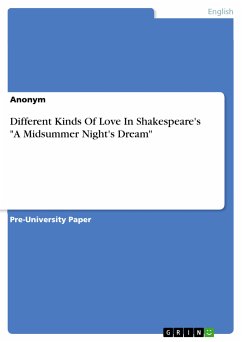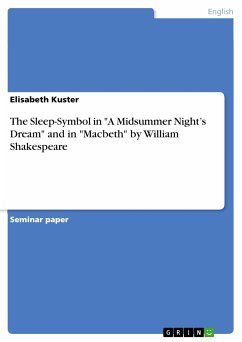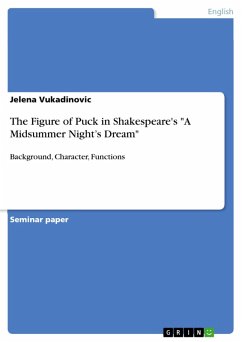Seminar paper from the year 2012 in the subject English Language and Literature Studies - Literature, grade: 1,3, University of Würzburg (Lehrstuhl für Englische Literatur - und Kulturwissenschaft ), course: HS: Shakespeare's Comedies, language: English, abstract: "The course of true love never did run smooth" - this statement, made by the male protagonist Lysander in I,1 of A Midsummer Night's Dream, is arguably one of the most well-known lines from the play. In a nutshell, it represents its: the trials and tribulations of love; the obstacles young love has to overcome, the intrinsic complexities of established love, and the victory of true love in the end. This paper aims to take a look at the way, how different stages of love and love concepts are represented in AMD. As Shakespeare is said to have written this particular early play between 1594 - 1596 , a closer look will be taken at the conventions of love poetry in the literature of the Elizabethan age. The influence of the Italian Renaissance poet Petrarch's love poetry concept on Elizabethan love poetry conventions will be of special interest at this point. Further on, Shakespeare's very own love concept in his romantic comedies will be compared and contrasted to the love poetry of his age. The late 16th century and early 17th century, from the 1690ies and particularly with the onset of the reign of King James I, brought about a change in the perception and creation of conventional Elizabethan love poetry: from the commonplace Petrarchan conceits to a more individual, realistic yet Puritan depiction of the praised woman . With AMD being conceived in this particular time frame, possible reflections of this literary change of mind in the discussed play will be outlined in the analysis of this play. Scholars argue, that AMD originally might have been written by Shakespeare for a noble wedding celebration , because of its lenght, the marriages at the end of the play and the different aspects of married life the play offers. The aspect of marriage and marital conventions in the Elizabethan age will be another point of analysis in this paper, determining whether Shakespeare stayed true or subverted common assumptions of married life at his age. The final analysis will try to apply the aforementioned theoretical points to AMD and take a look at how marriage, love, and literary love concepts are represented by the respective couples in the play.
Dieser Download kann aus rechtlichen Gründen nur mit Rechnungsadresse in A, B, BG, CY, CZ, D, DK, EW, E, FIN, F, GR, HR, H, IRL, I, LT, L, LR, M, NL, PL, P, R, S, SLO, SK ausgeliefert werden.

